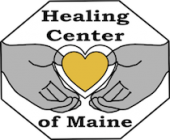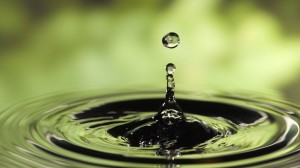You need to drink more water. How many times have you heard this mandate? Usually the recommendation is part of a diet plan to lose weight. Those who’ve tried it usually abandon the effort as soon as the diet has ended. I think most would agree it’s difficult to drink the recommended eight glasses a day and it makes for a lot of trips to the bathroom.
I admit my efforts to drink more water have not all been successful. I recently read the book, Your Bodies Many Cries for Water, by F.Batmanghelidj, M.D., and I’ve found renewed motivation to drink more water. Originally published in 1992, the book has sold over a million copies. The author claims many chronic illnesses are caused by a lack of sufficient hydration, and further that their cure is as simple as drinking more water. The book is full of testimonial letters supporting his claims.
Why we need water
All functions are dependent on proper hydration. Water is the “vehicle” which transports and delivers all the vital nutrients, hormones, and chemical messengers throughout the body
- Water is a structural component of all our tissues. The human body can be as much as 75% water.
- Water provides perspiration critical to maintaining our body temperatures through evaporation.
- Water is the primary component of blood, essential to delivering nutrients and removing waste product from our cells.
- Water is essential to proper digestion and elimination.
- Water level in the body effects blood pressure.
Why soda and coffee don’t count
Beverages with high water content such as tea, coffee, and alcohol contain diuretic properties so they do not provide the water the body needs. They actually dehydrate the body further. Therefore they are not adequate sources of the water the body needs.
What happens when we don’t get enough
The body employs a rationing system when there is deficient water, directing water first to the most vital organs. Whenever there is a shortage, somebody suffers. In adequate water guarantees some bodily function or tissue will suffer damage.
When the body is dehydrated it activates a rationing system by releasing the neurotransmitter histamine which triggers an inflammatory response along with allergies.1 The inflammatory response leads to pain. According to Dr. Batmanghelidj, pain is actually an important thirst signal and dry mouth is actually the final sign of extreme dehydration.
Recognition of thirst becomes less accurate as chronic dehydration progresses.
Dr. Batmanghelidj’s Water Prescription
1- Explanations of the causative effect of dehydration on some illnesses include;
a. Stomach Pain – A mucus layer covers the inner most layer in the stomach. This mucus is 98% water. The stomach layer below this mucosa produces a bicarbonate solution which becomes trapped in the mucus above. This bicarbonate infused mucus layer neutralizes the digestive acid as it tries to penetrate the stomach. This neutralization produces salts which need to be flushed from the mucosa layer by adequate hydration from the layers below. The acid is essential to the digestion of food and a properly hydrated mucosa layer is essential to protection of the stomach. Stomach pain should be considered a thirst signal. Water provides the only natural protection from stomach acid.
b. Rheumatoid Arthritis – Cartilage coats the ends of the joints allowing them to glide easily over one another. Healthy cartilage is about 85% water. Cartilage wears and is replaced by the body. Dehydrated cartilage wears faster and is replaced more slowly. When there is damage to the cartilage the body attempts to repair it by depositing calcium. According to Dr. Batmanghelidj pain and non-infectious inflammation in the joint should be considered a thirst signal.
c. High Blood Pressure – The body must carefully balance the blood pressure by controlling the constriction and dilation of the blood vessels. Blood is primarily water. In a dehydrated state the water volume and hence blood volume is lowered. The lowered volume drops the blood pressure and to maintain adequate pressure the body constricts blood vessels, raising blood pressure. Water should be used to treat hypertension.
d. Excess Bodyweight – The signals the body generates for thirst and hunger are similar and people often confuse a thirst signal for a hunger signal. WE eat when we really need to drink.
e. Allergy and Asthma – Dr. Batmanghelidj stated, “When the body is dehydrated it activates a rationing system by releasing the neurotransmitter histamine which triggers an inflammatory response along with allergies”. Asthmatics have been shown to have higher histamine levels. Histamine constricts the bronchial muscles.
How to drink enough water
The general rule is you should drink half your weigh in ounces each day. So if you weigh 150lbs, you should drink 75oz per day. It’s best to drink the water a half hour before meals and a couple hours after. In my experience, the key to drinking this volume of water is to stop drinking beverages that aren’t water. Once you do that you’ll find you’ll make fewer trips to the bathroom and you can quite easily drink this amount of water. A bottle, preferably glass, that holds one quarter of your daily allowance is quite convenient. Drink one bottle when you wake up, one mid-morning, one in the afternoon, and one in the evening.
Common sense and water consumption
The human body is 75% water. What could be more critical than sufficient water levels? Doesn’t it make sense that once the body starts rationing the available water, something has to suffer the consequence of inadequate water levels?
You may ask, “Isn’t our thirst enough to regulate the required water intake?” I’m not sure it is. With so many beverage choices, many of which dehydrate us, can we truly rely on our bombarded senses to regulate water intake? The plethora of unhealthy food choices targeted at biologically inherited preferences for the taste of fat, sugar, and salt are an example of how our innate regulating systems fail us in the modern world. Maybe once we drop the processed food and processed beverages our innate thirst mechanism will function properly.
If you suffered from one of the maladies claimed to be treatable with water, why wouldn’t you try water first?
Written by Peter Wright
Photo 1, by Derek2 photos, 2007, https://picasaweb.google.com/lh/view?q=water+drop&uname=113573561764834974931&psc=G&filter=1&imglic=creative_commons#5584795778728593650
1“Dehydration-induced release of vasopressin involves activation of hypothalamic histaminergic neurons.Kjaer A, Knigge U, Rouleau A, Garbarg M, Warberg J.SourceDepartment of Medical Physiology, Panum Institute University of Copenhagen, Denmark. 1994 Aug;135(2):675-81”.
Latest posts by Peter Wright, NTP, CGP (see all)
- Dehydrated Broth – Making It Easy to Drink Broth Every Day! - March 11, 2017
- Lose 10 lbs DURING the Holidays - November 19, 2016
- Finding Good Oils - February 7, 2016



No comments yet.